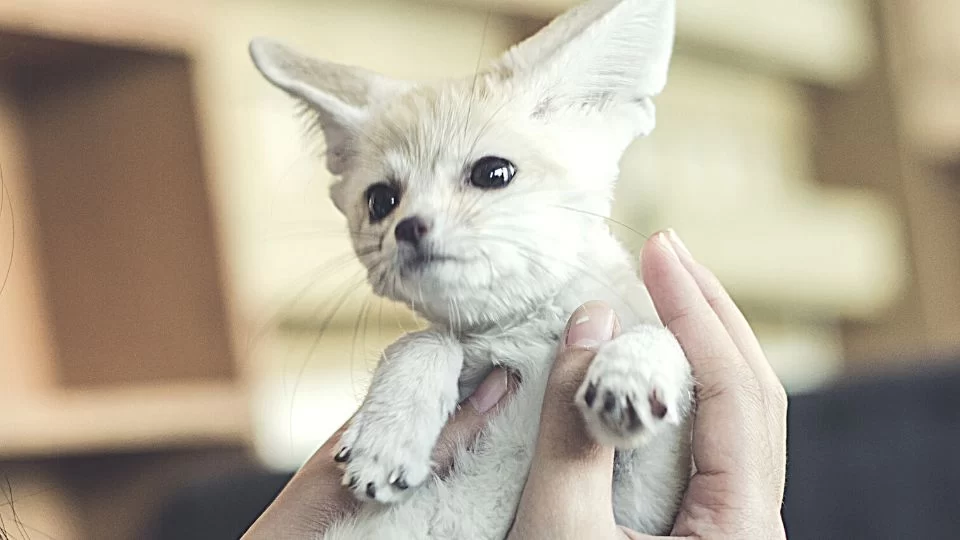Nutritional Needs of Exotic Pets: What You Need to Know
As an exotic pet owner, I’ve come to realize that providing the right nutrition for my pets is one of the most important aspects of ensuring their health and happiness. Exotic pets, unlike traditional pets like dogs or cats, often have very specific dietary requirements that can vary greatly depending on the species. Whether you're the proud owner of a reptile, bird, or small mammal, understanding the nutritional needs of your exotic pet is essential. Over the years, I’ve learned that a well-balanced diet is key to helping them thrive, and I want to share some of my insights with you.
1. Understanding the Basics of Exotic Pet Nutrition
The first thing I learned when caring for exotic pets is that their diets are incredibly diverse. Reptiles, birds, small mammals, and even fish all have their own unique dietary requirements. What works for one species may not work for another. For instance, while a herbivorous reptile may thrive on a diet of leafy greens, a carnivorous bird will need high-quality protein to maintain its health. Understanding what your pet’s species naturally eats in the wild can be a great starting point for creating a balanced diet.
It’s important to note that exotic pets are not all the same, and their nutritional needs can vary greatly within species as well. For example, the dietary needs of a desert-dwelling reptile like a bearded dragon will differ from that of a tropical species like a chameleon. The same goes for birds, where species like parrots may need more fruits and nuts, while others may have different protein or carbohydrate requirements.
2. The Importance of Proper Diet for Reptiles
Reptiles are a popular exotic pet choice, and I’ve had the pleasure of caring for several throughout the years. One thing I quickly realized is that reptiles have specific dietary needs that must be met to keep them healthy. For example, herbivorous reptiles, such as iguanas, thrive on a diet of leafy greens, vegetables, and fruits, while carnivorous reptiles, like snakes, require a protein-based diet that includes mice or other small animals.
Calcium and vitamin D3 are especially important for reptiles. Many reptiles, including my bearded dragon, can suffer from metabolic bone disease if they don’t get enough calcium in their diet. I’ve found that providing a good calcium supplement, along with UVB lighting to help with vitamin D3 synthesis, has been essential in preventing such issues. It’s also crucial to provide a variety of food, as reptiles can get bored with the same diet day after day.
3. Feeding Birds: A Diet That Supports Long-Term Health
Birds are one of the most intelligent and social pets you can have, and they need a well-balanced diet to stay active and healthy. I have learned from personal experience that a bird's diet should consist of high-quality pellets, fresh fruits, vegetables, and sometimes seeds. While seeds are often marketed as the go-to food for birds, they are actually too high in fat and not nutritionally complete. For long-term health, I feed my parrot a mix of formulated pellets and fresh produce.
It’s important to offer a variety of fresh fruits and vegetables as part of their daily diet. I’ve found that berries, apples, and leafy greens are favorites in my bird’s diet. I also make sure to avoid feeding them toxic foods such as avocado, chocolate, and onions, which can be harmful to their health. Hydration is just as important for birds, so I always make sure fresh water is available for them at all times.
4. Small Mammals and Their Unique Dietary Requirements
Small mammals, such as rabbits, guinea pigs, and hamsters, are another popular category of exotic pets. These pets often have a diet based primarily on fiber, which helps support their digestive systems. When I first adopted a rabbit, I was surprised to learn that they require a constant supply of hay to maintain healthy digestion. Hay is the cornerstone of their diet, and it provides the necessary fiber to keep their digestive systems moving.
In addition to hay, rabbits and guinea pigs also need fresh vegetables, like leafy greens, carrots, and peppers. It’s important to ensure that these vegetables are rich in vitamin C, especially for guinea pigs, who cannot produce it on their own. I’ve learned that providing a variety of greens and fresh produce not only keeps my pets happy but also ensures they get the nutrients they need. A high-quality pellet can also be included in their diet, but fresh foods should always be the focus.
5. Creating a Balanced Diet for Your Exotic Pet
Creating a balanced diet for your exotic pet can be a bit challenging at first, but with a little research and understanding, it’s possible to meet their needs. I always recommend consulting with a veterinarian who specializes in exotic pets to ensure your pet’s diet is meeting all of its nutritional requirements. In my case, a visit to the vet helped me understand which specific nutrients my reptiles and birds were lacking, and the vet was able to provide me with a tailored diet plan to help correct those imbalances.
It’s also essential to monitor your pet’s weight and overall condition. If they are gaining weight too quickly or losing weight, it may be an indication that their diet isn’t balanced properly. I always make sure to weigh my pets regularly and adjust their diet as necessary. Overfeeding or underfeeding can lead to a variety of health issues, so keeping a close eye on your pet’s condition is critical for long-term health.
6. Supplements and Special Diets for Exotic Pets
For many exotic pets, certain supplements may be necessary to ensure they are receiving all of the vitamins and minerals they need. For instance, reptiles often require calcium and vitamin D3 supplements, while some bird species may need additional vitamin A or iodine. I’ve used several trusted brands of supplements to meet these needs in my pets, and I’ve always made sure to follow the recommended dosage from my vet.
Some pets may also have special dietary needs due to health conditions. For example, some reptiles suffer from kidney disease and may require a low-protein diet. It’s important to work closely with a veterinarian to address any specific needs your pet may have.
Overall, providing a balanced and nutritious diet for your exotic pet can significantly improve their quality of life. Every pet species has its own unique needs, but with careful attention to detail and the right resources, you can ensure your exotic pet stays healthy and happy for many years to come.












